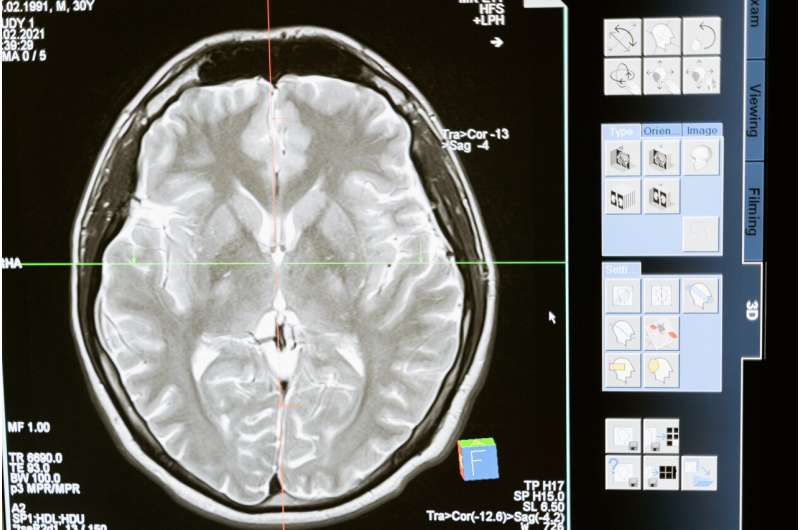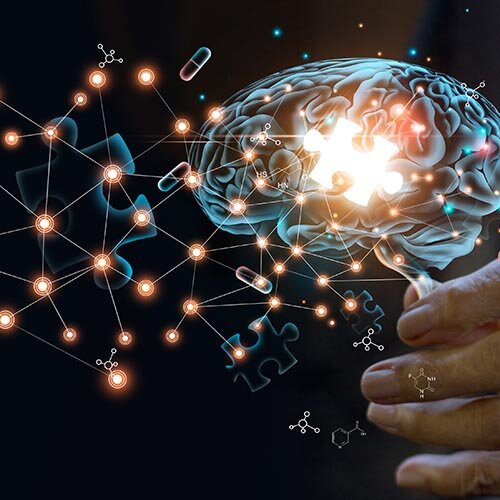
Every three seconds, someone in the world is diagnosed with dementia. And while there is no known cure, changes in the brain can occur years before a dementia diagnosis.
Now, a world-first study from the University of South Australia’s Australian Center for Precision Health has found a link between metabolism and dementia-related brain measures, providing valuable insights about the disease. Analyzing data from 26,239 people in the U.K. Biobank, researchers found that those with obesity related to liver stress, or to inflammation and kidney stress, had the most adverse brain findings.
The study measured associations of six diverse metabolic profiles and 39 cardiometabolic markers with MRI brain scan measures of brain volume, brain lesions, and iron accumulation, to identify early risk factors for dementia. People with metabolic profiles linked to obesity were more likely to have adverse MRI profiles showing lower hippocampal and gray matter volumes, greater burden of brain lesions, and higher accumulation of iron.
UniSA researcher, Dr. Amanda Lumsden, says the research adds a new layer of understanding to brain health. “Dementia is a debilitating disease that affects more than 55 million people worldwide,” Dr. Lumsden says. “Understanding metabolic factors and profiles associated with dementia-related brain changes can help identify early risk factors for dementia.
“In this research, we found that adverse neuroimaging patterns were more prevalent among people who had metabolic types related to obesity.
“These people also had the highest Basal Metabolic Rate (BMR)—how much energy your body requires when resting in order to support its basic functions—but curiously, BMR seemed to contribute to adverse brain markers over and above the effects of obesity.”
Senior Investigator, UniSA’s Professor Elina Hyppönen says the finding presents a new avenue for understanding brain health. “This study indicates that metabolic profiles are associated with aspects of brain health. We also found associations with many individual biomarkers which may provide clues into the processes leading to dementia,” Prof Hyppönen says.
“The human body is complex, and more work is now needed to find out exactly why and how these associations arise.”
Source: Read Full Article
